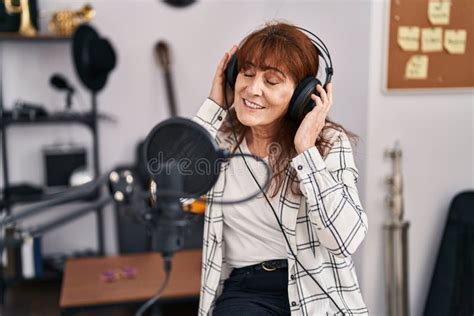While the idea of joining a rock band in my 50s initially froze me with doubt, it turned out to be an unexpected journey of self-discovery and brain-boosting benefits. Having dabbled in singing at karaoke and amateur shows during my 30s and 40s, the opportunity to audition for a live band reignited a passion that had been buried beneath layers of middle-aged invisibility.
As a petite woman in her mid-50s, I had gradually succumbed to societal expectations of fading into the background, concealing strands of grey hair under varying hues of red and trading vintage fashion for casual hoodies and jeans. However, an incident where I sustained a mild concussion served as a wake-up call, prompting me to challenge the limitations imposed by age.
The invitation to audition for the rock band stirred something within me—a reminder that despite growing older, there was still room to embrace new experiences and rediscover forgotten passions. So, with newfound determination, I cast aside my doubts and hesitations, saying
“Yes”
to venturing into uncharted territory.
From childhood dreams inspired by icons like Suzi Quatro on Countdown to pursuing a career as a music journalist, music had always been woven into the fabric of my life. Yet, singing with The LangLangs offered me a chance to explore a different dimension of music—one that required honing vocal skills amidst post-concussion challenges such as vertigo and balance issues.
My journey with The LangLangs was not just about mastering lyrics or hitting high notes; it became an exploration of how proper vocal technique could enhance not only my voice projection but also alleviate physical discomfort stemming from scoliosis. Through guidance from my singing teacher, I learned that singing is not just about what comes out of your mouth—it’s about engaging your entire body as an instrument.
Amidst concerns over memory lapses following the head injury, joining the band surprisingly garnered approval from my neurologist who likened my brain’s need for stimulation to that of a teenager craving excitement. This led me down a path of research unveiling how music and singing could aid in concussion recovery and promote brain health as we age.
Studies indicated that engaging in musical activities later in life could bolster executive functions like planning and memory while fostering social connections crucial for overall well-being. The therapeutic effects of music extended beyond cognitive benefits; they encompassed emotional support, neuroplasticity enhancement post-brain injury, and defense against cognitive decline associated with conditions like dementia.
After months spent rehearsing diligently with The LangLangs, stepping onto the stage at Sydney’s Moshpit for our debut gig was both exhilarating and nerve-wracking. Despite moments of stage fright or fumbling over lyrics, each performance unearthed camaraderie amongst bandmates—a shared love for music transcending individual imperfections.
As I navigated through renditions of iconic hits like The Motels’ Total Control or Blondie’s Rip Her to Shreds on stage—with gestures mirroring lyrics—I realized that perfection wasn’t the goal; it was about embracing imperfections alongside fellow musicians united by passion. Witnessing older women fronting bands within Sydney’s music scene fueled inspiration—a testament to defying stereotypes surrounding age in pursuit of creative fulfillment.
With every gig adding layers to my experience as part-time rocker-turned-vocalist-for-hire—and more importantly—contributing positively towards brain health through musical engagement—I found myself immersed in a world where age became irrelevant against the backdrop of pulsating melodies echoing on stage.
Embarking on this late-blooming musical odyssey unearthed not only hidden talents but also reaffirmed how embracing new challenges can lead us down paths brimming with unexpected rewards—both for our minds and souls.

